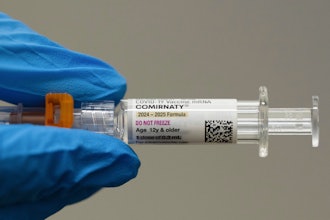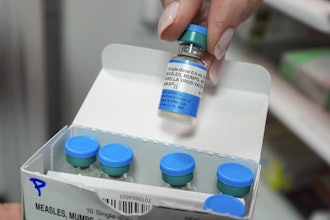
The Federal Trade Commission has sued to block GTCR BC Holdings' acquisition of medical device company Surmodics, alleging that the deal, which seeks to combine the two largest manufacturers of critical medical device coatings, is anti-competitive.
The FTC charges that private equity firm GTCR’s proposed acquisition of Surmodics would create a combined company controlling more than 50% of the market for outsourced hydrophilic coatings. These coatings are often used by medical device manufacturers and are applied to lifesaving medical devices such as catheters and guidewires.
“Medical device makers rely on high-quality coatings in designing and bringing to market life-saving devices, such as neurovascular catheters,” said Daniel Guarnera, Director of the FTC’s Bureau of Competition. “This merger threatens to disrupt competitive dynamics that have ultimately benefited patients. Today, the FTC is stepping in to protect patients from this unlawful acquisition.”
Surmodics said that it intends to vigorously defend this case in court in order to complete the merger.
“Surmodics respectfully disagrees with the FTC's decision and remains committed to completing the Merger. Surmodics remains confident in both its rationale for the Merger and the value it will bring to all stakeholders, including shareholders, customers and patients. We have worked constructively with the FTC over the last several months to secure regulatory approval for the Merger and are disappointed by its decision to initiate litigation, as the Merger is pro-competitive," the company said in a statement.
GTCR currently owns a majority stake in Biocoat, which is the second-largest provider of outsourced hydrophilic coatings. Surmodics is the largest provider of outsourced hydrophilic coatings.
As the FTC’s complaint alleges, GTCR’s acquisition of Surmodics would lead to a highly concentrated market for outsourced hydrophilic coatings and eliminate significant head-to-head competition between Biocoat and Surmodics. This direct competition has spurred lower prices, higher quality coatings, and product innovation. The proposed deal would change those competitive dynamics and harm medical device manufacturers as well as patients, the complaint states.
Hydrophilic coatings allow physicians to maneuver medical devices within the tight confines of the body—within a blood vessel in the brain, for example—without damaging sensitive tissue or vital structures. Medical devices with hydrophilic coatings are used in a range of interventional neurovascular, structural heart, coronary, and peripheral vascular procedures.






















